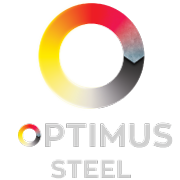Design Low-Carbon Products Consumers Can Trust
Decarbonize your value chain, increase transparency, and future-proof your brand.
Talk To Us
.svg)

.svg)

Product-Level Emissions Accounting
Attribute carbon emissions to specific SKUs, brands, or product lines - powered by robust Scope 3 data across suppliers, packaging, and logistics.
Supplier Collaboration & Data Sharing
Collect primary emissions data directly from suppliers and co-manufacturers to gain visibility into hotspots and drive upstream improvements.


Scenario Analysis for Product & Packaging Choices
Model and compare emissions outcomes from ingredient changes, packaging redesigns, or supplier shifts—alongside cost implications.


What’s Holding the Industry Back?
Sustainability Without Supply Chain Insight
Your emissions are mostly upstream - but your data isn’t. SINAI brings supplier-level transparency so you can decarbonize with confidence.
Eco-Friendly Goals, Business Realities
It’s not enough to say you’re sustainable - proof is required. SINAI ties environmental impact to financial performance, making sustainability measurable and strategic.
Consumers Are Watching, Regulators Are Too
The demand for low-carbon, traceable products is rising fast. SINAI helps you stay ahead of public expectations and regulatory standards with real-time, verifiable data.
Make Low-Carbon Sustainable products your competitive edge with SINAI
Talk To UsReal Impact, Real Stories
See how leading organizations are leveraging SINAI’s Climate Transition Planner to achieve their sustainability goals.

.svg)
Grupo Boticário, with its sustainability team, worked together with SINAI's climate change and customer success experts to conduct a relevance and materiality assessment, in order to identify scope 3 emission sources and activity data to develop a comprehensive GHG inventory. The biggest challenge during the inventory development process was data collection for new scope 3 emission sources.


Aligned with the recent shift towards sustainable products and value chain decarbonization across the globe, PennEngineering has begun to receive requests from their customers to share their scope 1 and scope2 emissions to aid in value chain emissions tracking and enable decarbonization.


Optimus Steel partnered with SINAI to replace spreadsheet-based carbon accounting with a centralized, auditable GHG management platform. With SINAI, this transition enabled the digitization of scopes 1, 2, and 3 emissions over the last five years, and supported an inventory structure for product carbon footprint (PCF) calculations.








